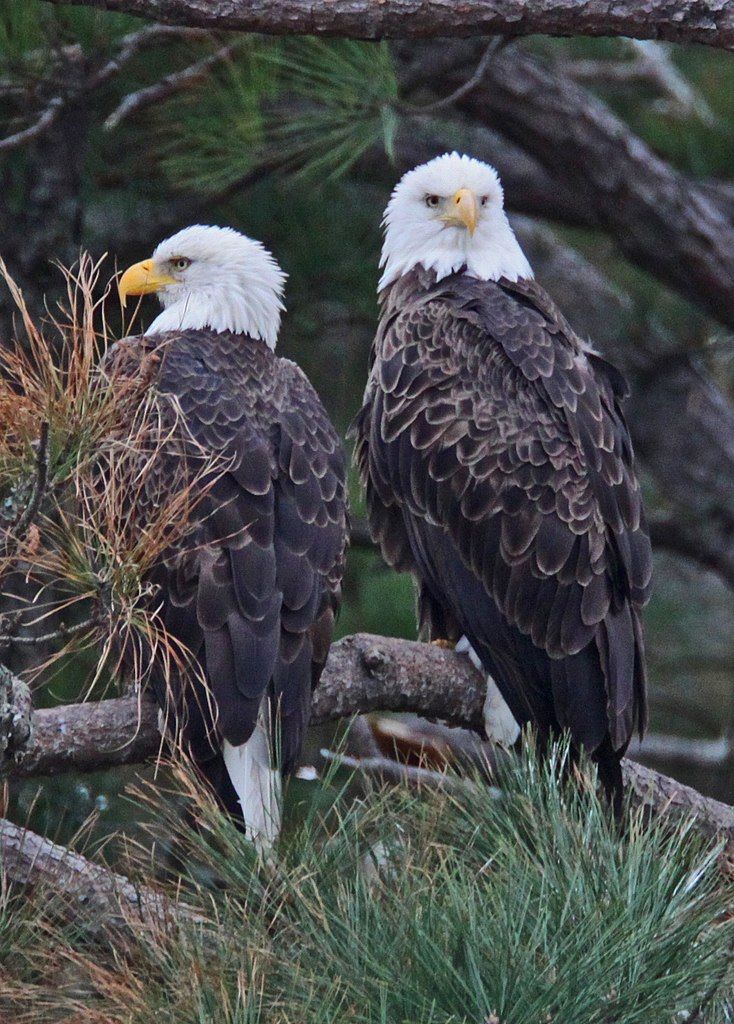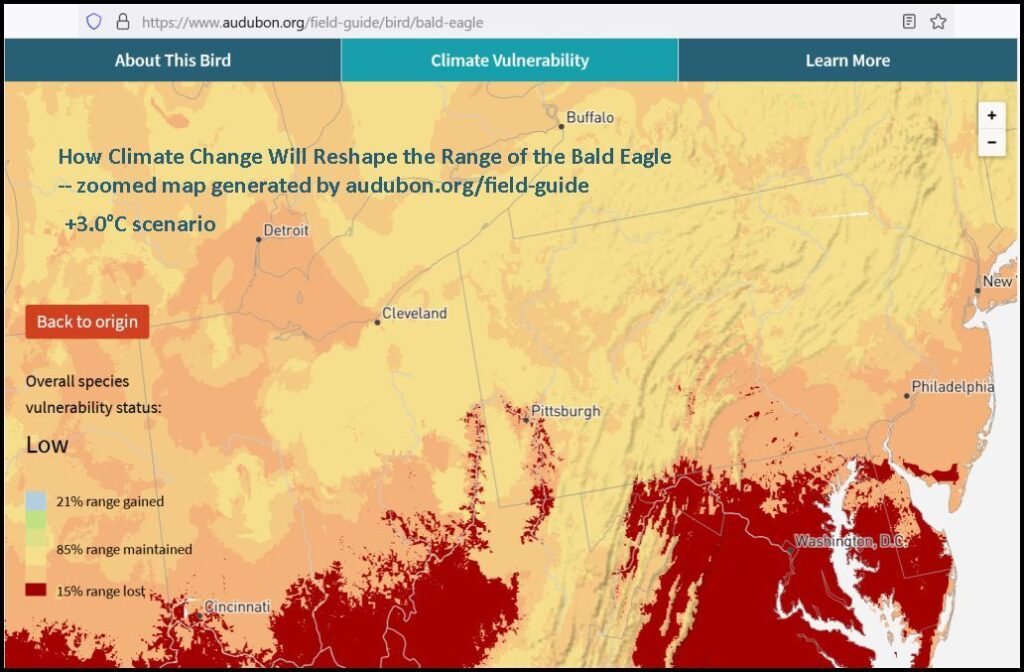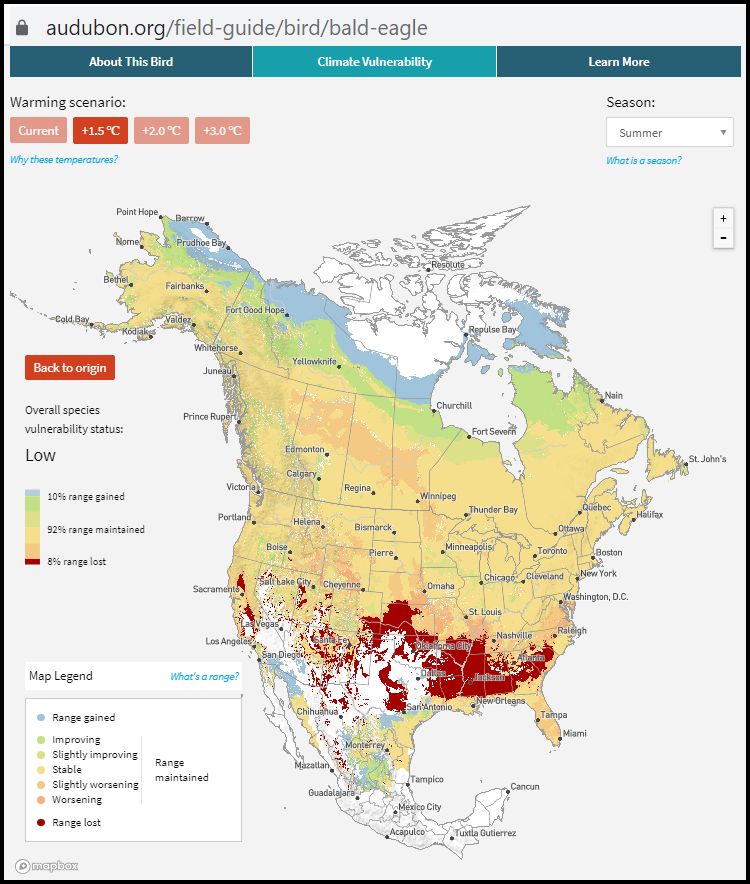
9 July 2023
A decade ago we thought climate change was a slow moving train but now it’s heating up so fast that new calculations predict we will hit the +1.5°C (2.7°C) global temperature mark in the next five years. The National Audubon Society’s Climate Initiative predicts that most bird species will shift northward. Unfortunately our national symbol, the bald eagle, will leave much of its favorite range in the U.S.
… The Audubon Society predicts that three-quarters of the bald eagles’ current summer range will become unsuitable for the birds in about 60 years.
“A lot of their breeding is going to shift completely into Canada and Alaska. So the lower 48 is looking less ideal for breeding conditions for the species,” said Brooke Bateman, senior scientist at the National Audubon Society.
— Yale Climate Connections: How climate change could hurt bald eagles
At +1.5°C — in the next five+ years — the biggest decrease will be in a swath of the Southeast and Lower Mississippi Valley. This screenshot map of bald eagle climate vulnerability is tiny on purpose so that you’ll view it on the Audubon website. Click here, then scroll down to see the maps for winter/summer.
A global temperature rise of +3.0°C will reduce bald eagle nests in a huge swath of the U.S. from Maryland, Virginia and North Carolina westward to Nebraska and Arkansas. This is unhappy news for Pittsburgh where red indicates a 15% loss of bald eagle nests under the +3.0°C scenario. [Again, view this map on the Audubon website. Click here, then scroll down to see the maps for winter/summer.]

Sadly, climate change will prompt our national bird to move away from home.
Read more about the Audubon climate change report at Yale Climate Connections. See the affect of climate change on the bald eagle’s range in the Audubon Field Guide:
- Click here for the Audubon Field Guide bald eagle page
- Just below the banner photo, click on the Climate Vulnerability tab at center
(photo from Wikimedia Commons, screenshot from Audubon.org field guide bald eagle account)
